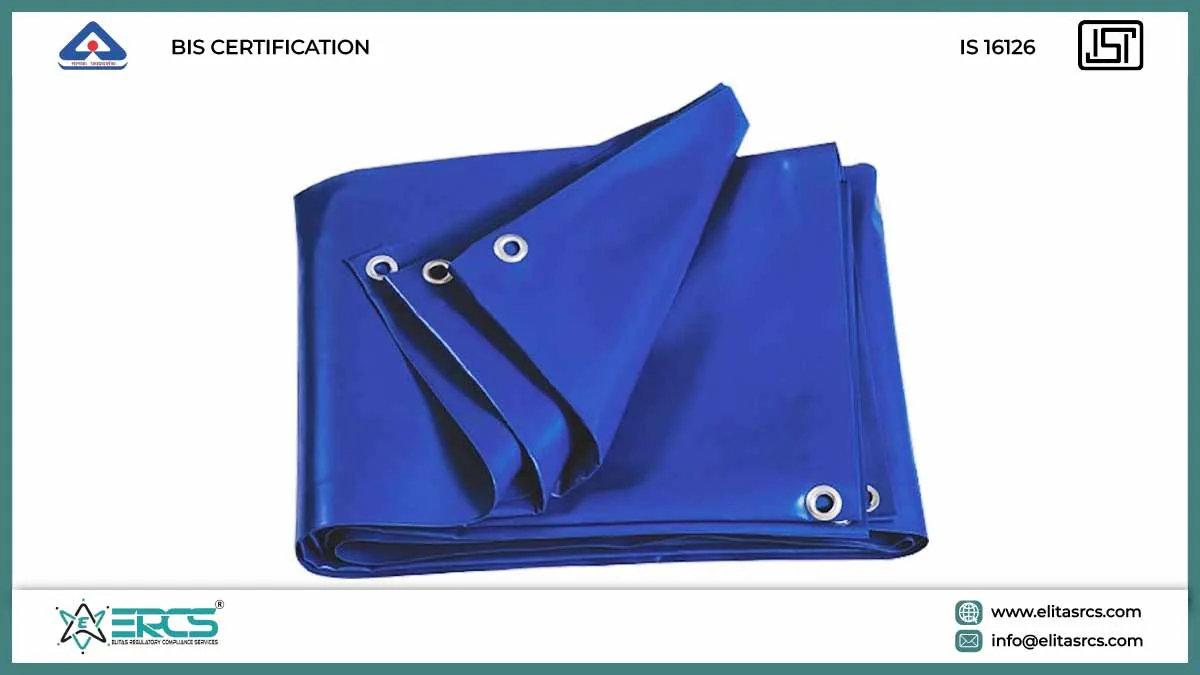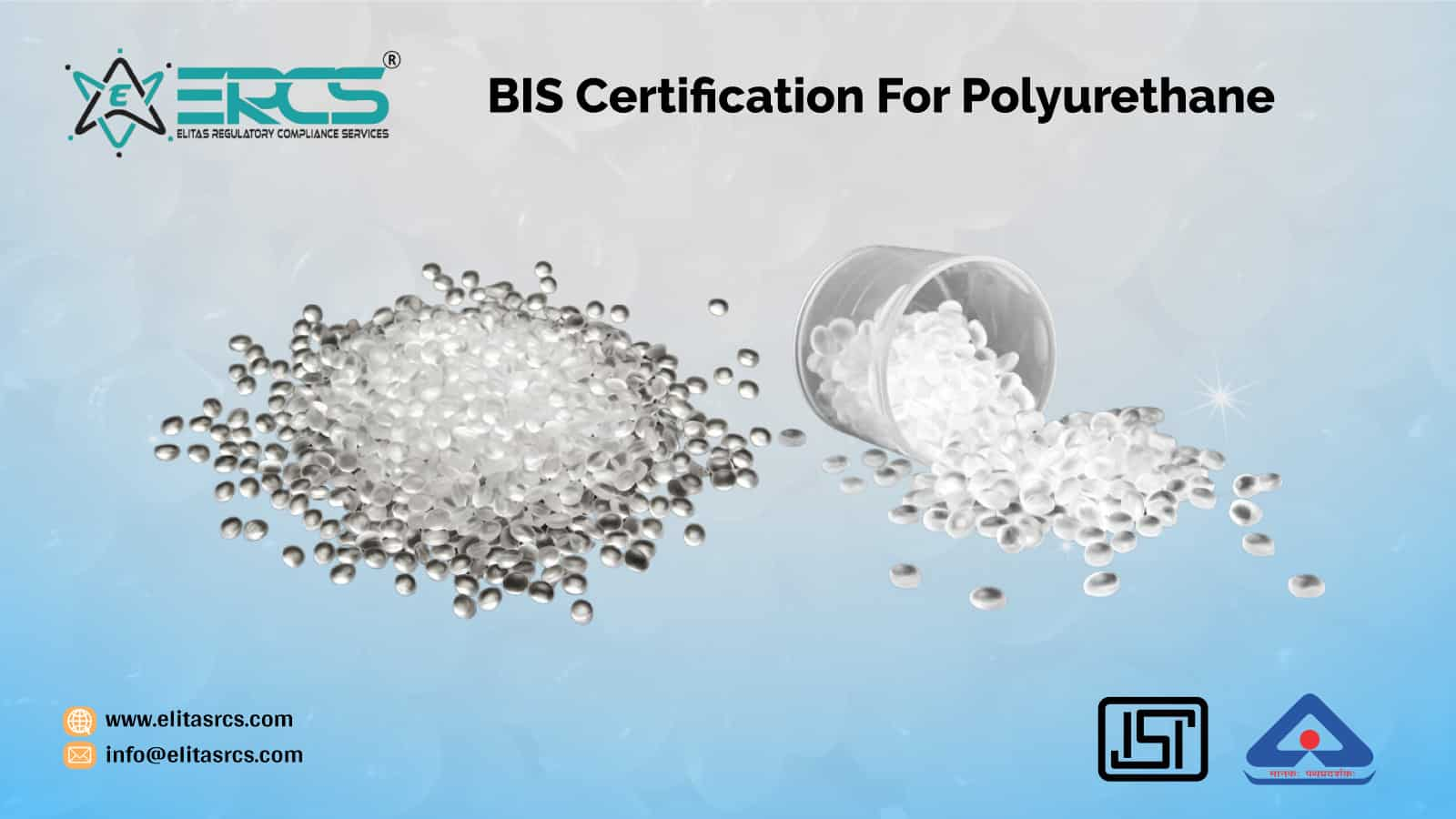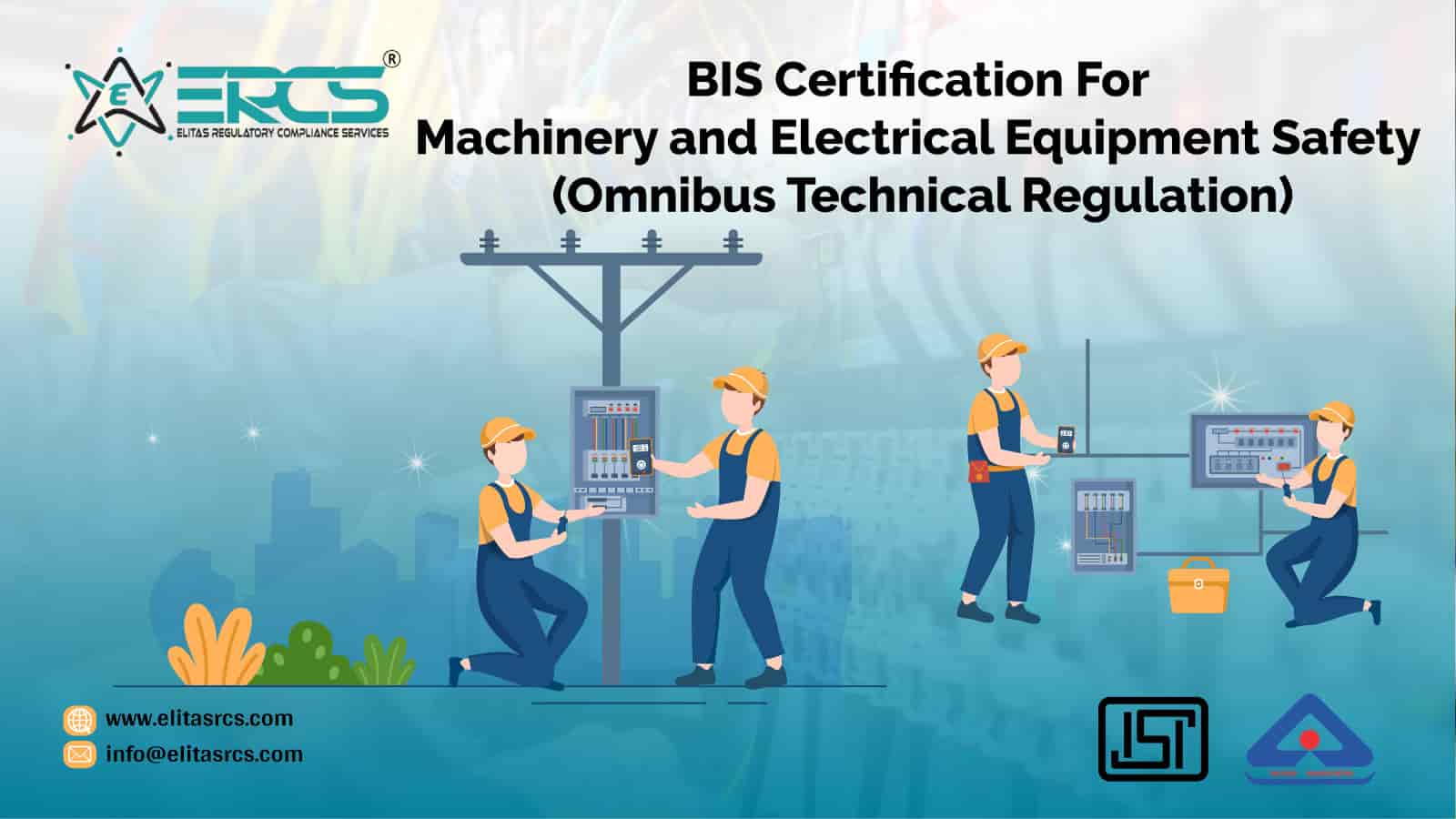BIS Certification for Waterproof Tarapaulins Made from Woven Polyester Fabric IS 16126

Polyester fabric (polyethylene terephthalate) is a synthetic woven material known for being durable and relatively inexpensive to produce.
The word “tarpaulin” comes from the two words- tar (black coating substance) and pall (fabric). Tarpaulin dates back to the 17th century when sailors used a tarred canvas/pall to cover objects on ships from sun damage and rain. With time tarpaulin has become the most commonly used material to provide protection against harsh weather conditions, dirt, and debris.
BIS is a statutory institution established under the Bureau of Indian Standards Act,1986 to promote harmonious development of the activities of standardization, marking and quality certification of goods and attending to connected matters in the country.
Waterproof tarpaulins made from woven polyester fabric product has been specified in IS 16126:2013 by Bureau of Indian Standards.
SCOPE :
This standard specifies constructional, performance and functional requirements of two varieties of water resistant and rot resistant tarpaulins made from polyester fabric, bleached and/or dope dyed based on end use application and mass per unit area that is light and medium varieties.
REFERENCES :
- 391 : 1975 - Method for determining resistance to penetration by water of f a b r i c s by hydrostatic head test (first revision)
- 1389 : 1969 - Methods for testing cotton for resistance to attack by micro-organisms
- 1390 : 1983 - Methods for determination of pH value of aqueous extracts of textile materials (first revision)
- 1954 : 1990 - Determination of length and width of woven fabrics — Methods (second revision)
- 1963 : 1981 - Methods for determination of threads per unit length in woven fabrics (second revision)
- 1964 : 2001 - Methods for determination of mass per unit length and mass per unit area of fabrics (second revision)
- 1969 (Part 1) 2009 - Textiles — Tensile properties of fabrics — Determination of maximum force and elongation at maximum force : Part 1 Strip method (third revision).
- 2454 : 1985 - Methods for determination of colour fastness of textile materials to artificial light (Xenon arc lamp) (first revision).
- 2977 : 1989 - Fabrics (other than wool) — Method for determination of dimensional changes on soaking in water (first revision)
- 3416 (Part 1) : 1988 - Method for quantitative chemical analysis of mixtures of polyester fibres with cotton or regenerated cellulose: Part 1 Sulphuric acid method (second revision)
- 3442 : 1980 - Method for determination of crimp and count of yarn removed from fabrics (first revision)
- 4084 : 1978 - Specifications of eyelets and washers (sail) (first revision)
- 5176 : 1985 - Hawser-laid hemp ropes (first revision)
- 6359 : 1971 - Method for conditioning of textiles
- 6803 : 1972 - Special proofed canvass and duck
- 7016 (Part III) : 1981 - Methods of test for coated and treated fabrics: Part III Tear strength (first revision)
- 7941 : 1976 - Methods for determining water repellency of fabrics by cone test
- 9543 : 1980 - Spun polyester sewing threads
- 15742 : 2007 - Textiles — Requirements for clothing made of limited flame spread materials and material assemblies affording protection against heat and flame — Specification
BIS CERTIFICATION IN INDIA
Contact us on +91 9076611770 or email on info@elitasrcs.com regarding any query about BIS certification, product testing, compliance, audit, etc.
Share:
Article Categories
Latest Blogs
-

-

-

-

15 Oct, 2024 BIS Certification for Polyurethane IS 17397 (Part 1)
-

Need Expert Advice?
Feel Free to Connect with Us
Prompt reply within hours
Continued support
Experience Consultants at ERCS are ready to assist you at every step of compliance so as to provide you the best services in India. Get complete information about the certification that your product need to enter in Indian market and build a good consumer base.